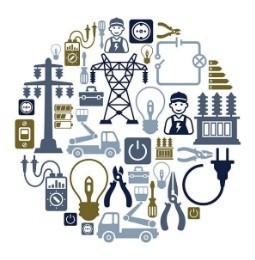
Overview
Title: Vocabulary Charge
Grade: 5th Grade
Duration: 30 – 45 Minutes
Standards
Science: SC.5.P.10.1
Investigate and describe some basic forms of energy, including chemical, electrical, electromagnetic, heat, light, mechanical, nuclear, solar, and sound energy.
Language Arts: LAFS.5.RI.3.7
Draw on information from multiple print or digital sources, demonstrating the ability to locate an answer to a question quickly or to solve a problem efficiently.
Objective
The following activity will be used as a formative assessment to gauge students’ prior knowledge about energy forms. It can also be used to clear up any misconceptions they may have about energy
Essential Questions
- What is energy?
- Why is it important to have different forms of energy?
Vocabulary
Motion • Transfer • Energy • Kinetic Energy • Potential Energy • Electric Currents • Electrical Energy • Light Energy • Sound Energy • Heat Energy • Chemical Energy • Electromagnetic Energy • Mechanical Energy • Nuclear Energy • Convert • Natural Resources • Renewable Energy • Fuel
Background Information
Energy is the ability to do work. It gives us light and heat and provides us with electricity that enables us to cook our food, operate machinery, and move from one place to another. There a many forms of energy and they may be transformed (changed) from one form to another.
Forms of Energy:
- Chemical Energy
- Electrical Energy
- Thermal (Heat) Energy
- Light Energy
- Mechanical Energy
- Nuclear Energy
- Sound Energy
Guiding Questions
- What is energy?
- How is energy used?
- In what ways is kinetic energy different from potential energy?
- What are the forms of energy and what is the impact it has on our daily lives?
- What are some sources of chemical energy?
- What happens to the flow of electricity if the circuit I opened?
- What happens when an object gains or transfers heat?
- What is our main source of light energy?
- How is mechanical energy different from the other forms of energy?
- How does nuclear energy work?
- Do the pros of nuclear energy outweigh the risks?
- How do sound waves through different mediums?
Inquiry Type
- Controlled Inquiry/Pairs – Lesson - Vocabulary Charge
Teacher Resources
Forms of Energy – Vocabulary Charge!
Charge! is an engaging and fun game that will give students the opportunity to review vocabulary terminology.
Materials
- Something to use as a timer (cell phone, stopwatch, etc.)
- Charge Card Game Directions
- Charge Card Game Flowchart
- Charge Card Game – Answer Key
- Recording Sheet
- Cards
- Pencil
Procedure
- Review directions with students.
- Place a task card at each student desk, facing down.
- Pass out recording sheet to each student.
- When your say charge, students will flip card and begin by answering the question at their own desk. (Let’s say that Susie is sitting with the Number 3 card. She will move to the number 4 card next, 5, 6 and so on.) Questions should only take between 30-45 seconds to answer.
- When prompted by the word Charge!
- Students move to the desk that would be next in numerical order.
- When you see that the students have finished with that card-prompt the movement again by saying Charge! and repeat until all cards are complete(students should end up at the desk they started in).
- Review answers with students.
